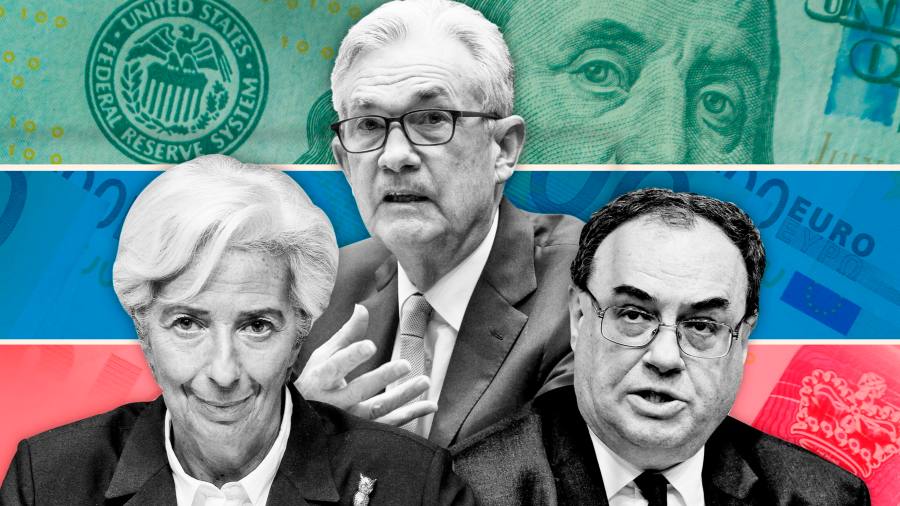Central bankers will be in the line of fire at their annual symposium in Jackson Hole this week — and they should be ready to engage with their critics. Last year, US Federal Reserve chair Jay Powell used his keynote speech to suggest price pressures would be “transitory”. Annual inflation in the US was then just above 5 per cent. Last month it reached 8.5 per cent. Elsewhere, Eurozone inflation hit 8.9 per cent, and Citigroup now forecasts UK inflation will hit 18.6 per cent in January — nine times the Bank of England’s 2 per cent target.
Price pressures have proved anything but ephemeral, and interest rates are rising sharply to bring them down. Central bankers need to engage in some soul-searching if they are to usher economies back towards price stability, and safeguard their own, vital, independence.
Politicians are now putting the blame firmly on central bankers for the inflation numbers. Liz Truss, frontrunner to become UK prime minister, has made criticism of the Bank of England a plank of her platform. Australia has already launched a review of its central bank. This may help governments to distract from their own shortcomings. But it further saps the reputations of central banks, which had already been damaged by the financial crisis.
The danger now is that monetary policy will be subsumed further into government hands. History offers ample proof that politicians cannot be trusted with deciding monetary policy. Rather than simply parrying criticism and hiding behind their previously largely successful track records since gaining independence, it is in central bankers’, and the public’s, best interest for them to set about restoring their reputations.
To blame monetary policymakers wholly for the cost of living crisis would be unfair. A lot has been outside their control, and shrouded in uncertainty. The unprecedented pandemic made it hard to judge where exactly demand and supply capacities were in relation to one another. Supply chain disruptions and new Covid-19 waves muddied estimations further. Vladimir Putin’s unforeseen invasion of Ukraine led to historic surges in oil, gas, and food prices. In hindsight, the mistakes look more obvious than they did at the time. Central banking is at best an art, not a science.
Nonetheless, both the technicalities and legitimacy of independent monetary policy are now under scrutiny. With credibility such a vital tool in anchoring inflation expectations of households and businesses, this year’s Jackson Hole meeting should catalyse a re-evaluation of central bank models, approaches, and philosophies.
Central banks also need to become more adaptable. The past two years have shown that traditional economic models offer little help when geopolitical, public health and supply chain factors become so decisive. The wisdom of offering forward guidance has been cast further into doubt. And reliance on historic trends — such as the previous decade of low and stable inflation — must not blind policymakers to the idiosyncrasies of present and future trends. Indeed, the Fed and ECB both amended their strategies during the pandemic, essentially making them more tolerant of higher inflation. Visible efforts to learn the lessons will go some way to restore confidence.
The former Fed vice-chair Alan Blinder is said to have described price stability as when ordinary people stop talking and worrying about inflation. Right now, that is a distant prospect. Europeans are struggling to pay energy bills, US rents are surging, and politicians are circling monetary policymakers like sharks. Central bankers need to reflect on where mistakes were made and show they can get a grip on the consequences.


